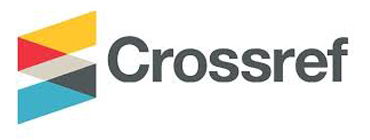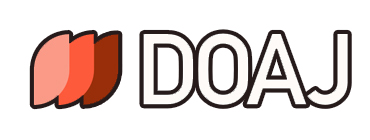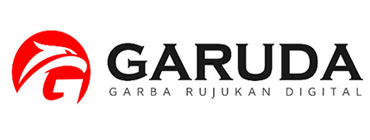MAPING THE DEVELOPMENT OF CRITICAL THINKING IN ISLAMIC EDUCATION USING BIBLIOMETRIC ANALYSIS
Abstract
Full Text:
PDFReferences
Agbaria, A. K. (2019). Religion and the global middle class: towards a new research agenda. Discourse, 40(5), 734–742. https://doi.org/10.1080/01596306.2019.1602307
Ainissyifa, H., & Nurseha, A. K. (2022). CONTEXTUALIZING MAHMUD YUNUS’ ISLAMIC EDUCATION CONCEPT IN MADRASAH ALIYAH. Jurnal Pendidikan Islam, 8(1), 87–100. https://doi.org/10.15575/jpi.v8i1.19117
Alkouatli, C. (2018). Pedagogies in becoming muslim: Contemporary insights from islamic traditions on teaching, learning, and developing. Religions, 9(11). https://doi.org/10.3390/rel9110367
Altinyelken, H. K. (2021). Critical thinking and non-formal Islamic education: Perspectives from young Muslims in the Netherlands. Contemporary Islam, 15, 267–285.
Arif, M. (2019). Fundamentals of qur’anic education concept a critical conceptualization with special reference to Al-Kilani’s Thought. Global Journal Al-Thaqafah, 9(2), 15–26. https://www.scopus.com/inward/record.uri?eid=2-s2.0-85087011299&partnerID=40&md5=8a43fdfbc02687b4a9be19a155c174c8
Assingkily, M. S., & Mesiono, M. (2019). Karakteristik Kepemimpinan Transformasional di Madrasah Ibtidaiyah (MI) serta Relevansinya dengan Visi Pendidikan Abad 21. MANAGERIA: Jurnal Manajemen Pendidikan Islam, 4(1), 147–168. https://doi.org/10.14421/manageria.2019.41-09
Bafadhol, I. (2017). Lembaga pendidikan islam di indonesia. Edukasi Islami: Jurnal Pendidikan Islam, 6(11), 14.
Cahyo, S. D., Muslim, M. R. U., Rahman, A. N., & Pratolo, B. W. (2019). Needs analysis of Islamic-based english reading material for the Muhammadiyah junior high school. International Journal of Evaluation and Research in Education, 8(2), 286–292. https://doi.org/10.11591/ijere.v8i2.18647
Dhuhri, S., Hasan, H., Sakni, A. S., & Ismail, I. U. (2021). Passive Islamophobia and national cultural construction: A critical note on art curriculum. Indonesian Journal of Islam and Muslim Societies, 11(1), 1–27. https://doi.org/10.18326/IJIMS.V11I1.1-27
Dzati Amani, C. S. (2023). Konsep Critical Thinking Prespektif QS. Al-Alaq 1-5. Gunung Djati Conference Series, 19, 530–540.
Dzulkifli, I. (2021). Teaching and Learning AIDS to Support the Deaf Students Studying Islamic Education. Pertanika Journal of Social Sciences and Humanities, 29(4), 2263–2279. https://doi.org/10.47836/pjssh.29.4.09
Francis, L. J., McKenna, U., & Sahin, A. (2020). Exploring psalm 73:1–10 through sensing and intuition: The sift approach among muslim educators. HTS Teologiese Studies / Theological Studies, 76(3), 1–7. https://doi.org/10.4102/hts.v76i3.6093
Hamzah, M. I., Zhaffar, N. M., & Razak, K. A. (2018). Barriers in Teaching Critical Thinking in Islamic Education. Creative Education, 9(No.14). https://doi.org/https://doi.org/10.4236/ce.2018.914175
Hardaker, G., & Sabki, A. (2016). The nature of memorisation for embodiment. Journal for Multicultural Education, 10(1), 87–98. https://doi.org/10.1108/JME-01-2016-0019
Hussin, N. H., Noh, M. A. C., & Tamuri, A. H. (2014). The religious practices teaching pedagogy of Islamic education excellent teachers. Mediterranean Journal of Social Sciences, 5(16), 239–246. https://doi.org/10.5901/mjss.2014.v5n16p239
Ismail, N. K., & Zain, F. M. (2014). Tuan husain kedah: His influence and contribution in islamic education and development in kedah. Mediterranean Journal of Social Sciences, 5(29), 62–67. https://doi.org/10.5901/mjss.2014.v5n29p62
Judi, H. M., Noor, S. F. M., & Rahim, N. S. (2019). Visualisation method for effective presentation of Hadith commentary using cone tree. Journal of Engineering and Applied Sciences, 14(1), 62–67. https://doi.org/10.3923/jeasci.2019.62.67
Kazmi, Y. (2020). The Role of Critical Thinking in Islam, Hamdard Islamicus. Islamic Research Foundation International, Inc, 23 (1), 27–36.
Mohd Zhaffar, N., Hamzah, M. I., Abdul Razak, K., & Wan Abdullah, W. A. A. (2016). Ke Arah Guru Pendidikan Islam sebagai Pemikir Kritis. Sains Humanika, 8(3), 9–15. https://doi.org/10.11113/sh.v8n3.739
Mouftah, N. (2012). Eleanor Abdella Doumato and Gregory Starrett, editors, Teaching Islam: Textbooks and religion in the Middle East. Contemporary Islam, 6(1), 103–104. https://doi.org/10.1007/s11562-010-0136-5
Nasir Zakaria, G. A., Nawi, A., & Wekke, I. S. (2019). The effectiveness of implementing noble values through online problem-based learningamong students in higher learning institution. Journal of Advanced Research in Dynamical and Control Systems, 11(8 Special Issue), 540–556. https://www.scopus.com/inward/record.uri?eid=2-s2.0-85071312201&partnerID=40&md5=14cb95f473574a5e4af8df18db406417
Nawi, M. A. M., Zakaria, G. A. N., & Mahalle, S. (2014). A study of religious teacher’s readiness to teach outside the area of expertise. Social Sciences (Pakistan), 9(1), 20–23. https://doi.org/10.3923/sscience.2014.20.23
Noh, M. A. C., Ludin, M. S. M., & Suhid, A. (2013). Teaching competency among Islamic educators in Malaysia. World Applied Sciences Journal, 24(2), 267–269. https://doi.org/10.5829/idosi.wasj.2013.24.02.13198
Nuryana, Z. (2022). Academic reform and sustainability of Islamic higher education in Indonesia. International Journal of Educational Development, 89. https://doi.org/10.1016/j.ijedudev.2021.102534
Rahman, A. (2019). ISLAMIC LOCAL AWAKENING: STUDY OF MUHAMMADIYAH RENEWAL AS THE RISE OF ISLAMIC EDUCATION IDENTITY IN SOUTH SUMATERA. Jurnal Pendidikan Islam, 5(1), 65–74. https://doi.org/10.15575/jpi.v5i1.4039
Rohman, F. (2021). Watson-Glaser Critical Thinking Appraisal (WGCTA) Critical Thinking Ability Assesment in Fikih Learning With Watson- Glaser Critical Thinking Appraisal (WGCTA). Jurnal Penelitian Pendidikan Agama Dan Keagamaan, 19(3), 333–345. http://creativecommons.org/licenses/by-sa/4.0/
Sahakyan, N. (2018). Language debate and visions of the future in revolutionary Dagestan. Caucasus Survey, 6(2), 147–162. https://doi.org/10.1080/23761199.2018.1466603
Sai, Y. (2018). An exploration of ethos in Irish Muslim schools: ethnographic insights and perspectives from parents and teachers. Journal of Beliefs and Values, 39(1), 29–44. https://doi.org/10.1080/13617672.2017.1290374
Syaifullah, A. (2021). Critical Thinking: Pemecah Problema Pendidikan Islam Di Era Covid-19. Proceeding Antasari International Conference. https://doi.org/10.19105/tjpi.v15i1.2416.2
DOI: http://dx.doi.org/10.30829/tar.v30i2.3053
Refbacks
- There are currently no refbacks.

Jurnal Tarbiyah by UIN Sumatera Utara Medan is licensed under a Creative Commons Attribution-NonCommercial-ShareAlike 4.0 International License.
Based on a work at http://jurnaltarbiyah.uinsu.ac.id/index.php/tarbiyah.
Permissions beyond the scope of this license may be available at http://jurnaltarbiyah.uinsu.ac.id/index.php/tarbiyah/about/submissions#copyrightNotice.
















